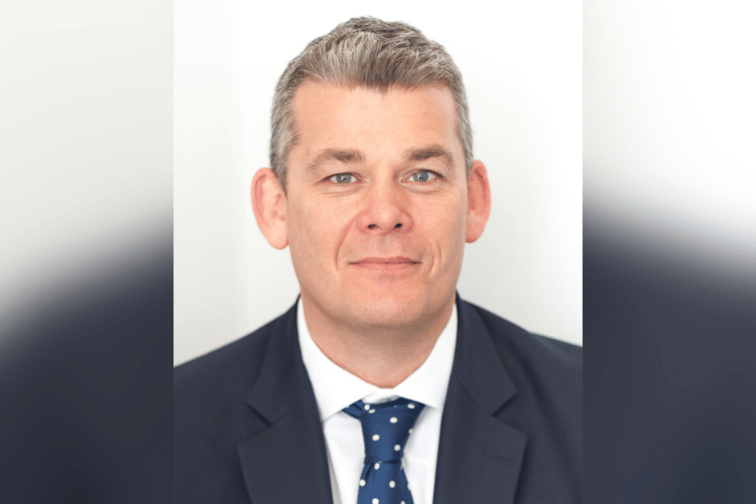

While seated next to the CEO of a large aircraft firm on a flight in pre-COVID times, James Nicholson (pictured), head of expert and commercial insurance claims for Zurich UK, enquired, quite reasonably, whether his companion was an engineer by trade. “No,” the CEO replied, “I’m an accountant by trade, the trick is knowing enough to be dangerous.”
It is a phrase that has stayed with Nicholson since, as it perfectly encapsulates what it means to be a leader and what it takes to build a great team. Given the scale of his role – he leads a team of around 420 individuals spread across the UK with key hubs in Birmingham, London and Glasgow – it’s not feasible to have a specialism in every line of business that the company deals with, rather he is privileged to lead individuals who each specialise in a specific area, and to support and encourage them to do what they do best.
At the heart of that ethos rests the diversity of thinking that Zurich champions as the key to creating the right insurance solution, he said, both from its customers’ and its brokers’ perspectives.
“It has been proven that more diverse work environments [yield] higher profitability and more diversity of thought when it comes to creative solutions,” he said. “Also, it brings opportunity as younger people that come into insurance organisations now are much more aligned to a diverse working environment.
“You can take all those headlines and say that clearly there is an alignment between the profitability and success of firms and a more diverse workforce. From the Zurich perspective, however, one of the things that we are focused on is that we want our workforce to reflect the communities that we work in… And we recognise the need for more diverse individuals within our organisations that portray not just key characteristics around ethnicity, gender, disability and sexual orientation, but also social diversity.”
It’s critical that businesses have a multi-faceted lens through which they examine diversity, Nicholson said, and that they recognise that a D&I strategy is about more than statistics and targets. Certainly, there are numbers and figures involved but what it really means, especially for Zurich’s claims team, is changing the internal culture that exists to fit an evolving philosophy. That’s not something that can be done over a limited time period, it has to be sustained and embedded into the culture and fabric of an organisation.
“We do that particularly by focusing on education,” he said, “by winning the hearts and minds of our broader team. It’s critically important to us that when we look at embedding D&I into our organisation, it’s accepted and embraced by everybody in the broader population. Because you can say ‘I want to create a more diverse workforce’ and take all sorts of measures towards that but the key is making it inclusive for people once they’re in the organisation.”
Success in D&I initiatives is not around percentages, it’s around the experiences of individual people and how included they feel when part of a business. That’s the magic piece, Nicholson said, and he and his team are striving to achieve it through internal education and leading from the front when it comes to creating a broader awareness around cultural differences or perspectives. Mentoring has been instrumental to this, as has been joining up with organisations such as the BYP (Black Young Professionals) Network.
“It’s also about having one eye on the future,” he noted. “We’ve looked at the talent that we bring in and when they will mature. That goes back to that statistics piece - when you’re bringing in a percentage of people and examining a range of factors around that. But you can’t look at those in isolation.
“Because inevitably, if you’re bringing in the right talent, {for instance those from our apprenticeship and graduate schemes), you have to show them a diverse workforce and the opportunities that exist for them working in the claims space in order to retain them. But even if they are retained and stay with Zurich, they don’t necessarily mature into more senior roles for several years so you have to look to offer them broader opportunities.”
Nicholson and his team go about this in a range of ways – from exploring individual development plans, to mentoring alongside external associations, to utilising Zurich’s internal mentoring scheme services. Mentoring talent is essential to being able to articulate what a career can look like over time, he said, and to making sure that every individual is empowered with a broad range of skills and capabilities.
As a long-time beneficiary of great mentorship, Nicholson is passionate about the opportunities that it presents individuals looking for success and fulfilment in their insurance careers. He has always been mentored, he said, whether that’s from people within his team or externally. Mentorship doesn’t have to be a top-down proposition, he said, and he feels lucky to have had some great mentors during his career.
“Some of these have been individuals who have been my boss and have almost put an arm around me to show me how to do things,” he said. “That’s not necessarily technical things within my role, but more about engagement with customers and the nuances of the bigger picture within Zurich. Sometimes, when you’re in a functional role, you can become very focused on that function, as opposed to the broader fabric of what Zurich is all about, so that has been rewarding. And, even now, I currently have a mentor who is excellent.”
